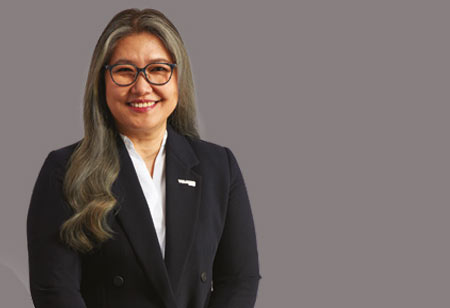

Thank you for Subscribing to Energy Business Review Weekly Brief

Zulfa Ashida Zulkifli has been the Vice President of Human Resources at Velesto Energy Berhad since February 2023. She has a comprehensive HR career across various industries and regions, including Asia Pacific, North America and Europe. Her previous roles include senior HR positions at UEM Sunrise Berhad, Bursa Malaysia, AirAsia Group, Shell and BP. She champions competency, integrity and objectivity in HR.
Through this article, Zulfa Ashida Zulkifli discusses the ongoing efforts to enhance diversity and inclusion (D&I) in the Southeast Asian oil and gas industry. She highlights the historical gender disparity, the initiatives by International Oil Companies (IOCs) and National Oil Companies (NOCs) to promote gender diversity and Velesto Energy’s commitment to D&I through targeted training, flexible work practices and community support. Diversity and inclusion (D&I) in the oil and gas industry, particularly in Southeast Asia, is an ongoing critical topic. While the industry has traditionally been male-dominated with limited diversity, many of the players are continuing our concerted efforts to improve inclusivity and representation across various dimensions, such as gender, ethnicity and age. Historically, the oil and gas sector has had low female representation, particularly in technical and leadership roles. The legacy of cultural norms and gender biases in some Southeast Asian countries has proven to exacerbate this disparity. "Southeast Asia’s National Oil Companies have made significant inroads in promoting gender diversity, with initiatives to support women in technical roles and leadership positions, providing mentoring and leadership development programs and increasing the participation of young talent in the industry" International oil companies (IOCs) such as Shell, Exxon and Hess, which operate in Southeast Asia, often adapt their regional strategies to align with their global approach to drive diversity and inclusion initiatives. At the same time, National Oil Companies (NOCs), notably Petronas (Malaysia), Pertamina (Indonesia) and PTTEP (Vietnam), have made significant inroads in promoting gender diversity, with initiatives to support women in technical roles and leadership positions, providing mentoring and leadership development programs and increasing the participation of young talent in the industry. Southeast Asia is a culturally diverse region with a mix of ethnic groups. Ethnic diversity is often reflected in the workforce demographics, amplified by the industry’s nature. Many companies have an internationally mobile workforce and managers but may still struggle with inclusion, particularly in leadership roles. At Velesto Energy, we have robust diversity and equal opportunity policies and practices and continue to improve by providing targeted training and development and collaborating with educational institutions to encourage interest in the field. As the bulk of our operations are offshore, we find that flexible working practices and strong community support are the cornerstones of ensuring a more diverse workforce in field operations. Overall, we have high hopes for more progress and success in this region, but fully aware that the D&I strategies and practices within the industry, the community and the individual organizations need sustained effort and commitment to ensure them.
I agree We use cookies on this website to enhance your user experience. By clicking any link on this page you are giving your consent for us to set cookies. More info

However, if you would like to share the information in this article, you may use the link below:
https://www.energybusinessreviewapac.com/cxoinsight/-zulfa-ashida-zulkifli-nwid-1760.html